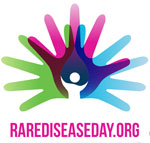Rare Disease Day 2014
February 17, 2014

MINNEAPOLIS/ST. PAUL Feb. 17, 2014 - Nearly 30 million people in the United States suffer from conditions classified as “rare diseases” – defined by the Food and Drug Administration (FDA) as conditions affecting fewer than 200,000 people.
While some bear names you’ve likely never heard of, other examples may surprise you. Huntington’s disease, Tourette’s syndrome and muscular dystrophy are all classified as rare diseases. In all, more than 6,000 medical disorders are considered rare.
For decades, Americans diagnosed with rare diseases had little hope. Drugs used to treat such conditions – known as “orphan drugs” – often never made it out of the lab as prioritization was put on drugs that would help conditions affecting millions. Then, in 1983, Congress passed the Orphan Drug Act in order to stimulate the development of new treatments for rare diseases. The move worked; since 1983 more than 350 new drugs have been developed.
Today, the University of Minnesota’s Center for Orphan Drug Research is investing new resources into the development of orphan drugs and drug delivery systems that could impact the lives of millions of people both in Minnesota and across the United States.
Since its inception in 2005, the Center for Orphan Drug Research has been improving the care of individuals suffering from rare diseases through research, increased education efforts, and by taking an active role in shaping public policy applicable to rare diseases and orphan drug development. According to the center’s director, James Cloyd, PharmD, the need for orphan drug research and development only continues to grow.
“As scientists learn more about the human body, we are likely to discover more rare conditions that need treatments,” said Cloyd. “Many such discoveries are taking place right here on the University of Minnesota campus, helping fuel new partnerships and pushing new discoveries.”
Rare Disease Day is Feb. 28
Each year, Rare Disease Day is observed internationally on Feb. 28 in an effort to raise awareness among the general public and decision-makers about rare diseases and their impact on patients and families. This year the University of Minnesota will host "Improving the Care of Those Living with a Rare Disease: Opportunities in Education, Collaboration, and Public Policy."
Learn more about Rare Disease Day

